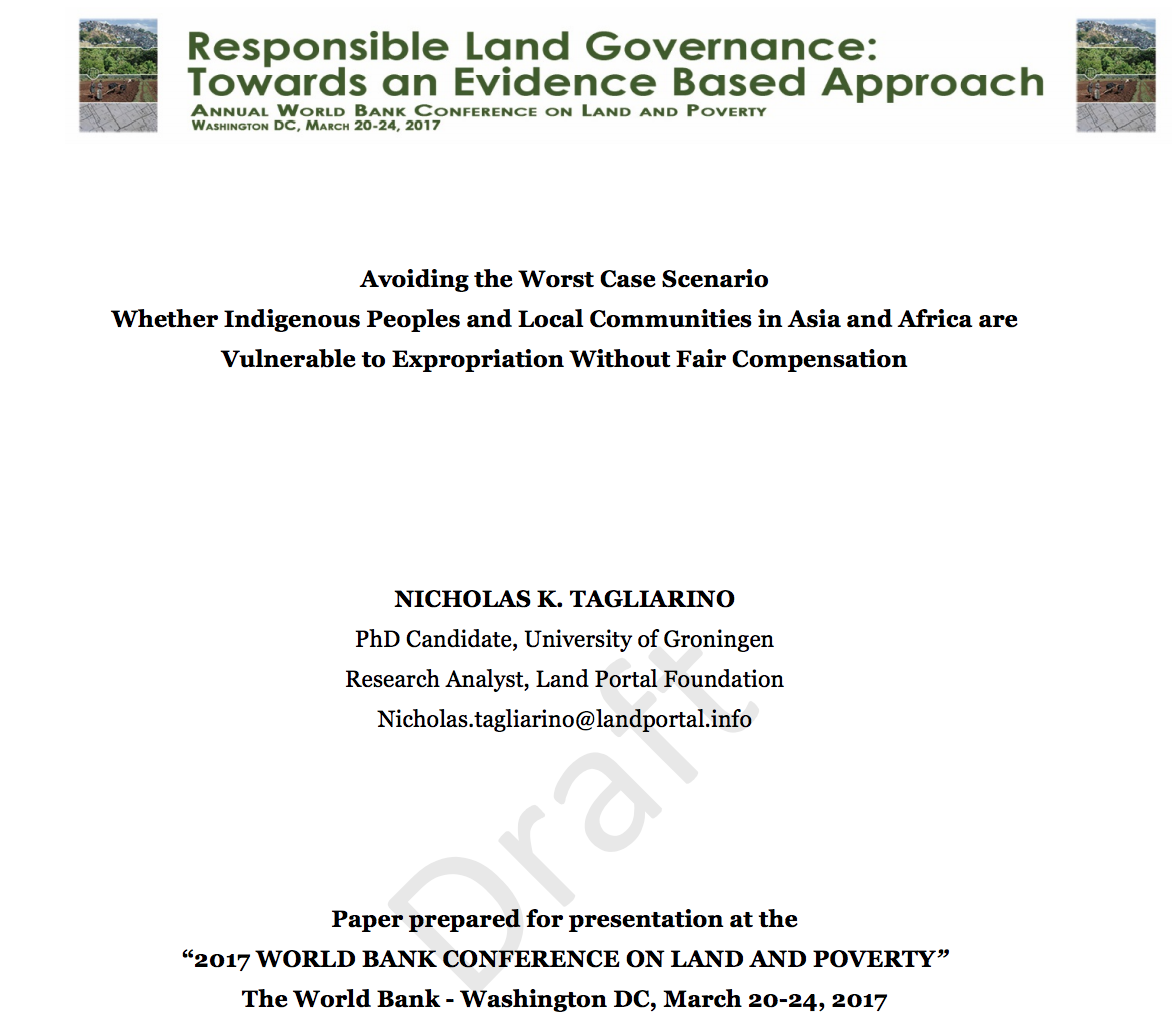Resource information
This paper examines whether national expropriation and land laws in 30 countries across Asia and Africa put Indigenous Peoples and local communities at risk of expropriation without compensation. In particular, this paper examines whether national laws ensure that communities are eligible for compensation and whether eligibility requirements effectively close the door on communities seeking compensation. The analysis is based on an assessment of national-level expropriation and compensation procedures, and also draws on research findings from the legal indicator data available on LandMark, a global platform of indigenous and community lands. The analysis measures national expropriation and land laws against a set of "compensation security" indicators. The indicators ask questions about whether laws impose restrictions on the rights of communities to receive compensation upon expropriation. The indicators were developed based on the principles established in the Voluntary Guidelines on the Responsible Governance of Tenure (2012) (VGGTs). By measuring national laws against international standards, and examining whether these 30 countries’ national laws provide potential loopholes through which governments may expropriate community land without compensating affected communities, this paper highlights legal gaps that must be filled in order for the VGGTs to be adopted in these 30 countries.


